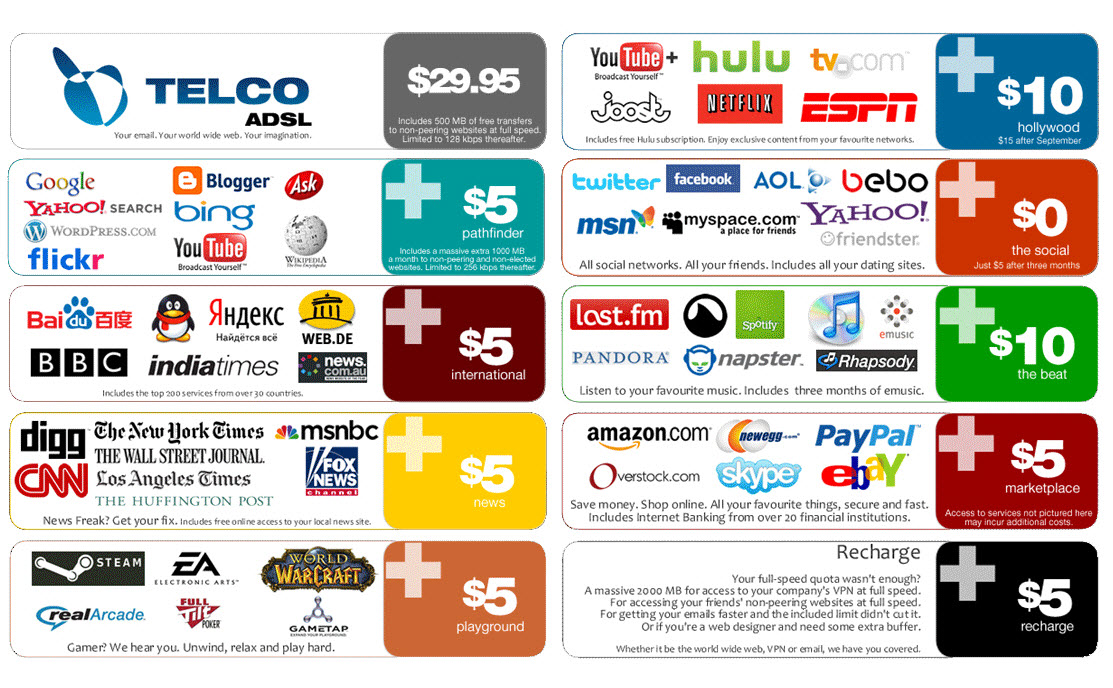 Net neutrality is the principle that Internet service providers and governments regulating the Internet should treat all data on the Internet the same, not discriminating or charging differentially by user, content, website, platform, application, type of attached equipment, or mode of communication. The term was coined by Columbia University media law professor Tim Wu in 2003, as an extension of the longstanding concept of a common carrier, which was used to describe the role of telephone systems.
Net neutrality is the principle that Internet service providers and governments regulating the Internet should treat all data on the Internet the same, not discriminating or charging differentially by user, content, website, platform, application, type of attached equipment, or mode of communication. The term was coined by Columbia University media law professor Tim Wu in 2003, as an extension of the longstanding concept of a common carrier, which was used to describe the role of telephone systems.A widely-cited example of a violation of net neutrality principles was when the Internet service provider Comcast was secretly slowing (a.k.a. "throttling") uploads from peer-to-peer file sharing (P2P) applications by using forged packets. Comcast didn't stop blocking these protocols like BitTorrent until the FCC ordered them to do so. In 2004, The Madison River Communications company was fined $15,000 by the FCC for restricting their customer’s access to Vonage which was rivaling their own services.
 AT&T was also caught limiting access to FaceTime, so only those users who paid for the new shared data plans could access the application. In April 2017, an attempt to compromise net neutrality in the United States is being considered by the newly appointed FCC chairman, Ajit Varadaraj Pai. On May 16, 2017 a process to roll back Open Internet rules, in place since 2015 began. This rule making process includes a public comment period that lasts sixty days: thirty days for public comment and thirty days for the FCC to respond.
AT&T was also caught limiting access to FaceTime, so only those users who paid for the new shared data plans could access the application. In April 2017, an attempt to compromise net neutrality in the United States is being considered by the newly appointed FCC chairman, Ajit Varadaraj Pai. On May 16, 2017 a process to roll back Open Internet rules, in place since 2015 began. This rule making process includes a public comment period that lasts sixty days: thirty days for public comment and thirty days for the FCC to respond.Research suggests that a combination of policy instruments will help realize the range of valued political and economic objectives central to the network neutrality debate.[13] Combined with strong public opinion, this has led some governments to regulate broadband Internet services as a public utility, similar to the way electricity, gas and water supply is regulated, along with limiting providers and regulating the options those providers can offer.